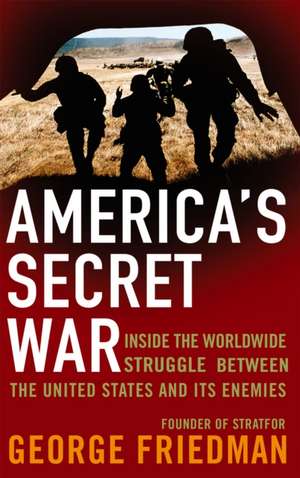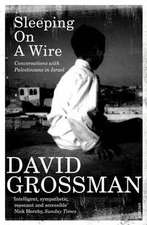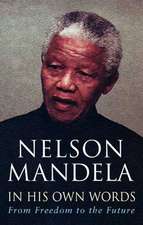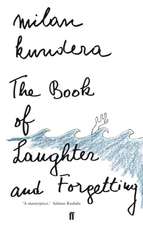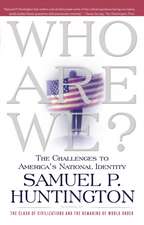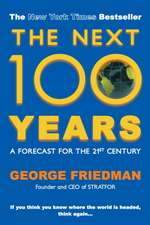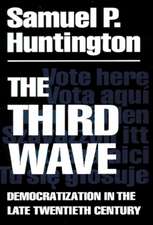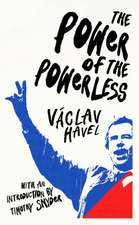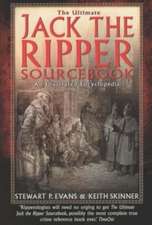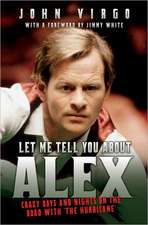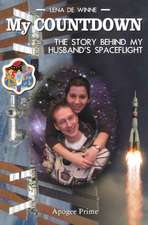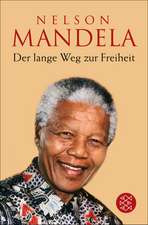America's Secret War
Autor George Friedmanen Limba Engleză Paperback – 4 oct 2006
| Toate formatele și edițiile | Preț | Express |
|---|---|---|
| Paperback (2) | 62.52 lei 3-5 săpt. | +30.77 lei 6-12 zile |
| Little Brown Book Group – 4 oct 2006 | 62.52 lei 3-5 săpt. | +30.77 lei 6-12 zile |
| BROADWAY BOOKS – 30 sep 2005 | 110.36 lei 3-5 săpt. |
Preț: 62.52 lei
Preț vechi: 82.34 lei
-24% Nou
Puncte Express: 94
Preț estimativ în valută:
11.96€ • 12.34$ • 9.98£
11.96€ • 12.34$ • 9.98£
Carte disponibilă
Livrare economică 06-20 martie
Livrare express 19-25 februarie pentru 40.76 lei
Preluare comenzi: 021 569.72.76
Specificații
ISBN-13: 9780349118925
ISBN-10: 0349118922
Pagini: 400
Dimensiuni: 128 x 196 x 28 mm
Greutate: 0.27 kg
Editura: Little Brown Book Group
Locul publicării:United Kingdom
ISBN-10: 0349118922
Pagini: 400
Dimensiuni: 128 x 196 x 28 mm
Greutate: 0.27 kg
Editura: Little Brown Book Group
Locul publicării:United Kingdom
Notă biografică
GEORGE FRIEDMAN is the founder and chairman of Stratfor, the leading private intelligence company. Friedman is the author of four books and numerous articles on national security, warfare, and the intelligence business. A nationally recognized expert on intelligence and international geopolitics, he has appeared on all the major television networks and has been featured, along with Stratfor, in such national publications as Time, Barron’s, the Wall Street Journal, and the New York Times Magazine.
Visit www.AmericasSecretWar.com for up-to-the-minute analysis and information.
To learn more about Stratfor, go to www.stratfor.com.
For more about this or any Doubleday title, visit www.doubleday.com.
Visit www.AmericasSecretWar.com for up-to-the-minute analysis and information.
To learn more about Stratfor, go to www.stratfor.com.
For more about this or any Doubleday title, visit www.doubleday.com.
Extras
Preface
The war that began on September 11, 2001, might be called the Fourth Global War, the U.S.-Jihadist War, the U.S.-Al Qaeda War, or the U.S.-Islamist War. Some would argue that it isn’t a war at all but an isolated act of terrorism that has been manufactured into a war. Nothing tells us more about the extraordinarily ambiguous and divisive nature of the war than the fact that three years into it, we do not even have a name for it.
This book is called America’s Secret War not only because so much of the war is hidden. It is the nature of war that each side must hide as much as can be hidden. The secrecy of this war goes deeper. More than in any other war I have studied, the true reasons for each side’s actions are hidden from view. If I look at the war through the lens of public discourse, nothing makes very much sense. Actions seem unconnected to one another, leading nowhere, lacking meaning. In the words of Macbeth, it is “a tale told by an idiot, full of sound and fury, signifying nothing.”
That is not how I view the last three years. In retrospect, sometimes we can see that the apparent chaos actually had a clear if deep order to it, an order sometimes not even apparent to the actors who, having said their lines and done their deeds, shuffle off the stage, unaware of the full meaning of what has happened. But it is my belief as well that if one fully understands the motives and reasoning of the players, it is possible to understand events while they are happening, or even before. The key is to understand the actors as they understand themselves and to understand the forces that drive and constrain them even better than they understand them.
In a game of chess, it appears that there are many moves available. There seem to be twenty possible first moves, for example. In fact, there are perhaps six. The better you understand chess, the fewer options you have. You come to realize that most of the apparent moves are disastrous, and the good moves are limited. The better the players, the more predictable and understandable the game is, until that extraordinary moment when a brilliant player invents a new variation on an established theme.
Stratfor was created to study the global chess game through the prism of geopolitics. Geopolitics teaches the importance of place in the world. But it also teaches that while humans make history, they do so from a menu dictated by the reality in which they find themselves. Stratfor’s purpose is to study the global chessboard and explain the moves that are being made and predict the moves that must be made by each side. We are aware that there are many who view the world as Macbeth does. We do not. Our understanding may be imperfect, but it is not nonexistent.
There are two basic themes to this book. The first is that the events we have passed through form a coherent pattern and that the political actors who have shaped the world are rational–if not necessarily moral or decent–actors. Americans tend to think of its leaders as fools and knaves and of its enemies as psychotic. This seems to comfort us. This book argues that while America’s leaders might be knaves, they are not fools, and that while our enemies might have utterly different moral values that are repugnant to us, they are far from insane. All around us, Stratfor sees excellent chess players, not always recognizing the unintended consequences of their moves, certainly not always making the right move, but, in the broad sweep of events, engaged in actions that are explicable.
The closer you stand to an object, the less sense it makes. The closer you watch this war, the more incoherent it becomes. This book uses Stratfor’s geopolitical method to step back from the events and see the order hidden within.
The second basic theme is that this is not a passionate book. To the extent possible, it intends to be cold and clinical. Nothing has become cheaper than passionate discourse. This book deliberately treats Al Qaeda and Osama bin Laden as what they are, skilled and dedicated men with a clear vision of how they want the world to look. It treats George W. Bush the same way. I understand that both views will be vigorously attacked by those who would wish to make each into monsters or idiots. They are neither. They are leaders, playing chess with the lives of others and the fate of the world. Fools and psychotics do not accumulate and hold such power.
This does not mean that I am indifferent to the outcome of the war. I am an American, and my fate is intimately bound to that of my country. Apart from that, I regard the moral principles of my republic as superior to those of other regimes. I understand that Osama bin Laden believes the same of his dream of Caliphate. That makes us enemies. Nevertheless, walking around in a fog of rage will not make me or anyone else more effective. Passion has been praised too much. It leads to loud noises and incoherence.
The title of this book is America’s Secret War. I am focusing on the idea of “secret war” not only in the sense that there are many secrets being kept from us in this war–who would expect otherwise? Rather, the secret I am referring to is the one that is sitting there right out in the open: the clear intentions, rational behavior, and inevitable errors in judgment and unintended consequences that have created the pattern for the past three years.
Writing a book in the middle of a war is not easy. There is a core problem: Between July 5, 2004, when I write these words, and October 5, 2004, when this book will be published, three long and dangerous months will elapse. Therefore, in something that is not common, an additional chapter of America’s Secret War will be written to close the gap just before publication date and posted to the Internet. This may have been done before with a book, but I am unaware of it.
Prologue
On the morning of September 11, 2001, special operations units of the international jihadist group Al Qaeda struck the United States. In a classic opening attack, they struck simultaneously at the political, military, and financial centers of the United States. The attack on the political centers failed entirely when the aircraft assigned to that mission crashed prematurely in Pennsylvania. The attack on the military center was only partially successful. The aircraft assigned to that target crashed into a section of the Pentagon that had been modernized with fire-resistant materials, which effectively contained the explosion. The planes assigned to attack the U.S. financial center succeeded completely, not only destroying the World Trade Center towers but closing down the financial markets for several days and disrupting the U.S. economy.
The nineteen men who carried out the mission were capable operatives. Their achievement was not taking control of four airliners simultaneously, although that was not a trivial accomplishment. Rather, it was planning, training, and deploying for the operation without ever being detected by American intelligence–or, more precisely, acting in such a way that in spite of inevitable detection, the data never congealed into actionable intelligence. While their military capabilities were enormously inferior to those of the United States–they had to steal an air force–their skills at covert operations were superb.
Al Qaeda had spent years trying to understand how U.S. intelligence worked. On September 9, the Sunday before the attack, Osama bin Laden, by most accounts, placed a phone call to his mother. During the short conversation, Osama told her, in effect, “In two days you’re going to hear big news, and you’re not going to hear from me for a while.” He placed that call on Sunday knowing that it would be intercepted by National Security Agency signal intelligence satellites. He also knew that the intercept-interpret-analyze cycle at the NSA for the region was running at about seventy-two hours. He knew that by the time the phone call was actually listened to and understood, the attack would already have taken place.
This was the real strength of Al Qaeda, a strength that it retains to this day. It understands the craft of intelligence and security and applies it rigorously. But Al Qaeda has another strength. The nineteen men who launched the attack on September 11 were not just prepared to risk their lives. They were prepared to go to their certain deaths and did so exercising discipline and control until the moment they died.
If Al Qaeda consisted of simplistic incompetents, the United States would not be in the global war it is embroiled in today. Fools do not make serious opponents. The challenge posed by Al Qaeda is that they are neither simple nor incompetents. However we judge their beliefs and however we evaluate their morality, the fact is that from a technical standpoint, they proved themselves to be highly competent covert operators.
The United States was taken by complete surprise on the morning of September 11, a surprise even greater than the attack on Pearl Harbor on December 7, 1941. With perfect hindsight, the evidence for an attack was there. Indeed, there had been some consideration given to such a scenario by North American Air Defense Command, which had scheduled a simulation of multiple hijackings crashing into buildings for later in 2002. The problem was that this was one of dozens of scenarios that had been considered, and there was as much intelligence pointing to other attacks in other countries as there was to airlines being crashed into U.S. buildings. Everyone knew Al Qaeda was out there, but no one knew what they were planning. Many now say they had forecast the attack. They need to be asked how many other things they warned of that never happened.
In 1941, the United States knew a war was coming with Japan. Indeed, a war plan had existed since 1920–Plan Orange–and the Naval War College had gamed out a war with Japan every year for a generation. The United States knew roughly how that war would be fought and knew approximately when it would start. Planning for the war with Al Qaeda had never taken place to the same extent because no one knew whether the enemy was going to attack, where they would attack, how to prevent the attack, or how to respond to the attack. No one treated Al Qaeda as seriously as they had treated Japan, in large part because the United States was good at thinking about threats from nations. It didn’t know how to think about threats from non-national groups.
The truth is that even as evening fell on that Tuesday in the United States, no one really understood the magnitude of the war that had begun–or that a war had begun at all. The worst fears of the American public had been stimulated. The civilian airline industry was shut down. The financial markets were shut down. Travel in and out of the United States was shut down. People were on the edge of their seats, expecting the next shoe to drop at any moment. No one really understood the enemy, his thinking, or his plans. It was a war in which the enemy was almost completely unknown.
The reality of the war first struck us on the evening of September 11. The day had been long and brutal, and I was in the unfortunate position of needing to make sense of the day’s events. Stratfor, the company my wife and I founded in 1996, was struggling to understand what had happened, feeding analysis to our Web site and clients. As evening fell, we thought we understood what had happened and privately dreaded what would likely result.
My wife and I live in the Texas Hill Country. We went for a walk around 10 P.M. to try to clear our heads from the day’s stunning events. Our conversation turned naturally to two of our four children. One was a captain in the Army National Guard, recently returned from Bosnia. Another was a second lieutenant in the Air Force, just beginning his military career. We had always known that our children had chosen professions that would inevitably call on them to go to war, but now that the war was here, abstraction turned into reality. We both felt the dread that only parents of children in wartime can feel. They were going to go where we could not possibly join them. They would be in danger. We would be only analyzing the danger.
In our normal evening walks, the brilliant Texas sky is usually filled with moving, silent lights–civilian planes, commercial and private, landing and taking off from Austin, San Antonio, and Houston. That night, as we looked up at the sky, nothing moved. There were only stars. The empty sky was electrifying. Then, a few minutes into our walk, we heard the sound of an unmuffled jet engine–the unmistakable sound of a fighter plane. An aircraft, lights on, was moving toward the south, very fast. It passed directly overhead. We figured it was an F-16 heading to the frontier. Frontier was a word that we had never used before about our borders, a few hundred miles south of us, but it was a word that came naturally that night. We were citizens of a country at war, a country with frontiers that had to be protected. Overhead, a pilot was taking a fast plane in harm’s way. The Fourth Global War had begun.
From the Hardcover edition.
Recenzii
Acclaim for George Friedman and STRATFOR
“Stratfor was miles ahead of CNN and all the other media…. A private quasi-CIA, Stratfor has enjoyed an increasing vogue in recent years as a result of the heady forecasts and many news breaks…. The web site has a huge underground following, dating back to the 1999 Kosovo War.”
--Barron’s
“Stratfor moved the financial markets all by itself when it reported that a Russian envoy was en route to Baghdad to negotiate peace with the Iraqis…. There is a temptation, when you are around George Friedman, to treat him like a Magic 8 Ball.”
--The New York Times Magazine
“Predictions have made George Friedman a hot property these days.”
--The Wall Street Journal
“Stratfor is changing the way we think about news.”
--The American Spectator
“They fill the appetite for international news and analysis that the newsweeklies once filled. But they do it twice as well as the newsweeklies – and in real time.”
--Lee Smith, Senior Editor, GQ
“The Friedmans: better than the CIA.”
--The Industry Standard
“Stratfor was miles ahead of CNN and all the other media…. A private quasi-CIA, Stratfor has enjoyed an increasing vogue in recent years as a result of the heady forecasts and many news breaks…. The web site has a huge underground following, dating back to the 1999 Kosovo War.”
--Barron’s
“Stratfor moved the financial markets all by itself when it reported that a Russian envoy was en route to Baghdad to negotiate peace with the Iraqis…. There is a temptation, when you are around George Friedman, to treat him like a Magic 8 Ball.”
--The New York Times Magazine
“Predictions have made George Friedman a hot property these days.”
--The Wall Street Journal
“Stratfor is changing the way we think about news.”
--The American Spectator
“They fill the appetite for international news and analysis that the newsweeklies once filled. But they do it twice as well as the newsweeklies – and in real time.”
--Lee Smith, Senior Editor, GQ
“The Friedmans: better than the CIA.”
--The Industry Standard
